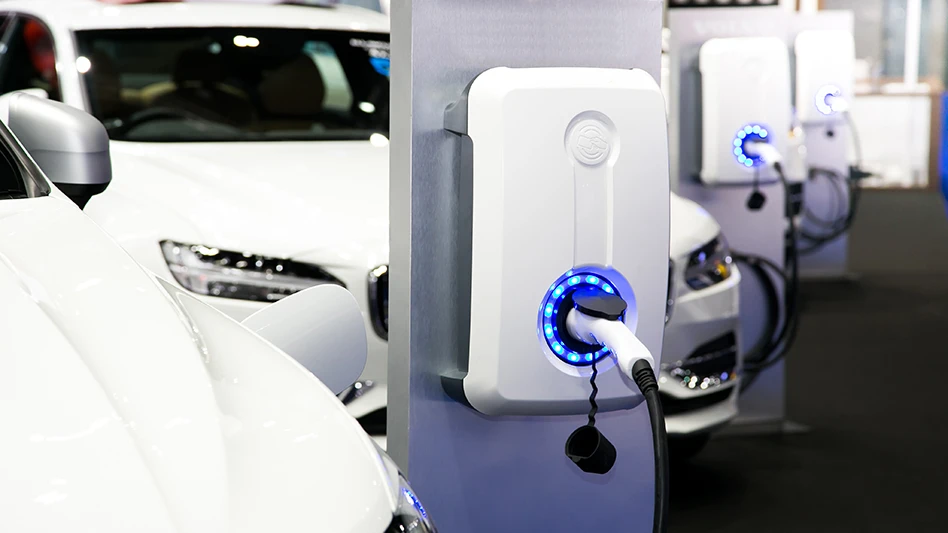
AdobeStock | 286874866
Rho Motion, the leading electric vehicle (EV) research house, revealed that following the fourth successive global monthly record of passenger car and light-duty EV sales, 17.1 million units were sold in 2024. December 2024 resulted in over 1.9 million EV units sold, a growth of 5% on the previous month’s record, and all major regions grew monthly and yearly in December 2024. Overall, global EV sales grew by 25% in 2024 compared to 2023.
The European market ended the year down -3% compared to 2023, as the EU & EEA market enters a testing year in 2025 due to emission standards coming into effect. The U.S. and Canada market grew by 9% in 2024, helped by the vehicle tax credits that incoming President Trump has announced he plans to cut. In China, EV sales have grown by 40% in 2024 compared to 2023, with another monthly record for EV sales reached in December 2024 with over 1.3 million units sold.
Snapshot electric vehicle sales in 2024 vs 2023
- Global: 17.1 million, +25%
- China: 11 million, +40%
- EU & EFTA & UK: 3.0 million, -3%
- USA & Canada: 1.8 million, +9%
- Rest of World: 1.3 million, +27%
“After the record-breaking year in 2023 for EV sales we entered 2024 with some optimism about the market despite headwinds,” says Rho Motion Data Manager Charles Lester. “While overall the global market has boomed, growing by a quarter over the year, the regional disparities have also grown. Europe’s market has shrunk 3% and China’s grown by 40%.
“What is clear is that Government carrots and sticks are working. In North America, the 9% growth can mostly be attributed to consumer subsidies and over in the UK, the ZEV mandate has highly incentivized manufacturers to push their low emission cars. Meanwhile the removal of subsidies in Germany had a devastating impact on the whole European market, if the U.S. follows suit, we may see the same there.”
EU & EFTA & UK
The EU & EFTA & UK market finished 2024 down by 3% after selling over 300,000 EV units in December 2024. Despite being down overall in 2024, the European market increased by 12% month-on-month and by 1% year-on-year. The UK market had the most battery electric vehicle (BEV) sales with over 400,000 units sold, surpassing Germany’s YTD sales towards the end of the year. The German EV market was down in 2024 vs 2023 following the removal of subsides at the end of 2023, ultimately having a negative impact on sales. However, the UK EV market was up by almost 20%, bolstered by the zero-emission vehicle (ZEV) mandate. Norway continues to have the highest penetration rate in the world and reached over 90% passenger car and light-duty EV sales monthly penetration towards the end of 2024.
China
The Chinese market grew by 2% month-on-month in December 2024 and by 36% year-on-year. Overall, this resulted in 40% growth in 2024. A huge part of growth in China came from plug-in hybrid electric vehicles (PHEVs) in 2024, with 81% growth, compared to BEV growth of 19%. The rise in demand for range-extender electric vehicles (REEVs) has played a significant role in the growth of PHEVs in China, a technology that has yet to come to Western markets in mass. The Chinese market benefited from its car trade-in scheme, which it doubled in July 2024, and has been extended for 2025. BYD’s sales kept growing throughout the year, with the major manufacturer easily selling the most EVs in China in 2024 as just over one-third of new EVs sold are BYD models. BYD has over 40 unique models in China across four EV brands. BYD is also planning to start production at its facility in Hungary in 2025, as it looks to gain market share in the European EV market, following the blow of EU BEV tariffs.
US & Canada
The U.S. & Canada market ended the year on a high with record EV sales in December 2024 of over 185,000 units sold. The North American market has consistently grown by ~10% throughout the year and finishes with a total of 1.8 million units sold in 2024.
The EV market in the U.S. will be tested in 2025, with the threat of the EPA emission standards or EV tax credit potentially being reversed, both of which are essential drivers of EV adoption in the US. Despite this risk to EV adoption in the U.S., there are still many facilities being built across the supply chain for EVs and EV batteries, with some being funded from the U.S. Department of Energy (DOE), most recently being Rivian’s $6.6 billion conditional loan from the DOE’s Advanced Technology Vehicle Manufacturing (ATVM) program.
Latest from EV Design & Manufacturing
- Powering homes with EV batteries could cut emissions, save thousands of dollars
- Meviy introduces stainless steel passivation option for CNC, sheet metal parts
- December Lunch + Learn webinar with Fagor Automation
- December Lunch + Learn webinar with LANG Technik + Metalcraft Automation Group
- EVIO makes public debut with hybrid-electric aircraft
- Redesigned pilot step drill triples performance
- Green Energy Origin expands battery electrolyte manufacturing in North America, Europe
- What’s next for the design and manufacturing industry in 2026?





